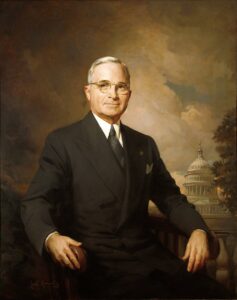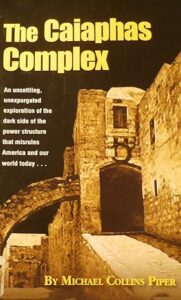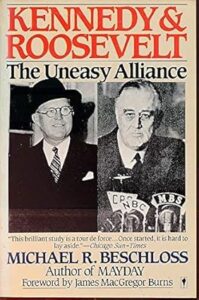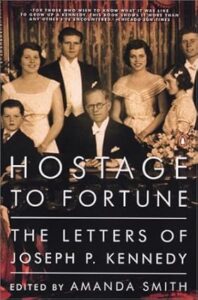The true story of World War II extends far beyond the battlefield.
Behind the scenes, powerful figures engaged in deep political maneuvering—often hidden from public view.
One such figure was Joseph P. Kennedy, the U.S. Ambassador to the United Kingdom and patriarch of the Kennedy family.
Far from the crude caricature often portrayed in mainstream media, Kennedy was a sharp critic of President Franklin D. Roosevelt and a determined opponent of America’s entry into the European war.
Through letters, books, and personal accounts, a very different image of Kennedy emerges—one that challenges many long-held beliefs about America’s path to war.
FDR’s Leverage Over Kennedy
Michael Collins Piper’s essay in The Caiaphas Complex explores the darker side of Kennedy’s political downfall.
According to Piper, President Roosevelt used threats of criminal tax charges to blackmail Kennedy.
The goal was to suppress Kennedy’s presidential ambitions and to silence his efforts to expose secret efforts by Roosevelt to bring the U.S. into the European conflict.
These behind-the-scenes moves weren’t just political.
They were strategic.
FDR aimed to control public debate and to prevent influential voices like Kennedy’s from revealing inconvenient truths about the road to war.
Recommended Reading: Kennedy and Roosevelt: The Uneasy Alliance
One of the most balanced mainstream studies of this relationship is Michael Beschloss’s Kennedy and Roosevelt: The Uneasy Alliance (HarperCollins, 1987).
This well-researched book dives into the fragile and short-lived alliance between the two men.
Beschloss details how the relationship soured, particularly after the tragic death of Kennedy’s son, Joe Jr., in World War II.
Kennedy reportedly blamed Roosevelt directly, calling him:
“that crippled son of a bitch that killed my son Joe.”
Piper notes that the official story of Joe Jr.’s death may not tell the whole story, raising further questions about wartime secrecy.
Dive into World War II: The Unnecessary War That Reshaped the World to reveal the secret agendas and backroom deals that transformed an avoidable crisis into a devastating global conflict.
Kennedy’s Own Words: Hostage to Fortune
For those who want to hear Kennedy’s thoughts in his own words, there is no better resource than Hostage to Fortune: The Letters of Joseph P. Kennedy (Viking Press, 2001), edited by his granddaughter Amanda Smith.
This volume offers access to Kennedy’s private letters and writings.
It paints a very different picture than the negative image often promoted in popular culture.
Kennedy appears as a clear-eyed statesman and a committed “America First” advocate.
His letters reveal a deep concern for American interests and a reluctance to be drawn into another European war.
Behind the Media Smear
According to Piper, Kennedy’s negative image—as a womanizer, bootlegger, and even Nazi sympathizer—was largely manufactured by the media.
Piper argues that this media narrative was driven by Jewish-controlled outlets determined to undermine Kennedy’s reputation.
Yet, Kennedy’s views were shared by many Americans at the time.
He opposed foreign entanglements and questioned the motives of those pushing the U.S. into global conflicts.
Piper contends that Kennedy’s honesty and influence made him a threat to the political establishment.
A Revealing Meeting with Truman
One of the most surprising details in Hostage to Fortune is Kennedy’s private meeting with then–Vice President Harry Truman.
According to Kennedy, Truman expressed concern about the overwhelming number of Jews in the Roosevelt administration.
This may come as a shock to those who view Truman favorably due to his support for Israel.
However, Truman’s private writings tell a different story.
Piper highlights a diary entry dated July 21, 1947, in which Truman described Jews as “selfish” and indifferent to the suffering of non-Jewish victims of war.
This diary entry was published by The Washington Post in 2003 and adds to the complexity of Truman’s image.

The War’s Real Influencers, According to Lindbergh
In 1941, aviation hero Charles A. Lindbergh gave a controversial speech for the America First Committee.
He declared that three groups were pushing the United States into war: “The British, the Jewish, and the Roosevelt administration.”
Piper argues that Lindbergh’s words still echo today and that the influence of these groups in shaping war policy must be taken seriously.
The Bigger Picture: From WWII to Today
In the posts that follow, I promise to explore how the forces that influenced World War II continue to shape U.S. foreign policy.
Special focus is given to the role of the pro-Israel lobby and its impact on America’s military involvement in the Middle East.
Wars, revolutions, media control, and financial interests are all part of the ongoing story.
These forces must be examined—no matter how uncomfortable the truth may be.

Unmasking the Power Struggles Behind WWII
The history of World War II is far more complex than schoolbooks suggest.
Powerful figures like Joseph P. Kennedy were silenced, misrepresented, or pushed aside to protect deeper agendas.
From Roosevelt’s manipulation of political rivals to the reshaping of Truman’s legacy and the ongoing impact of foreign lobbies on U.S. policy, the story is layered and disturbing.
By revisiting letters, diaries, and suppressed narratives, we begin to see a clearer picture.
One where dissent was punished and truth buried beneath patriotic slogans.
For those seeking to understand the full story, it’s essential to read beyond the official accounts and explore the voices long excluded from mainstream history.



